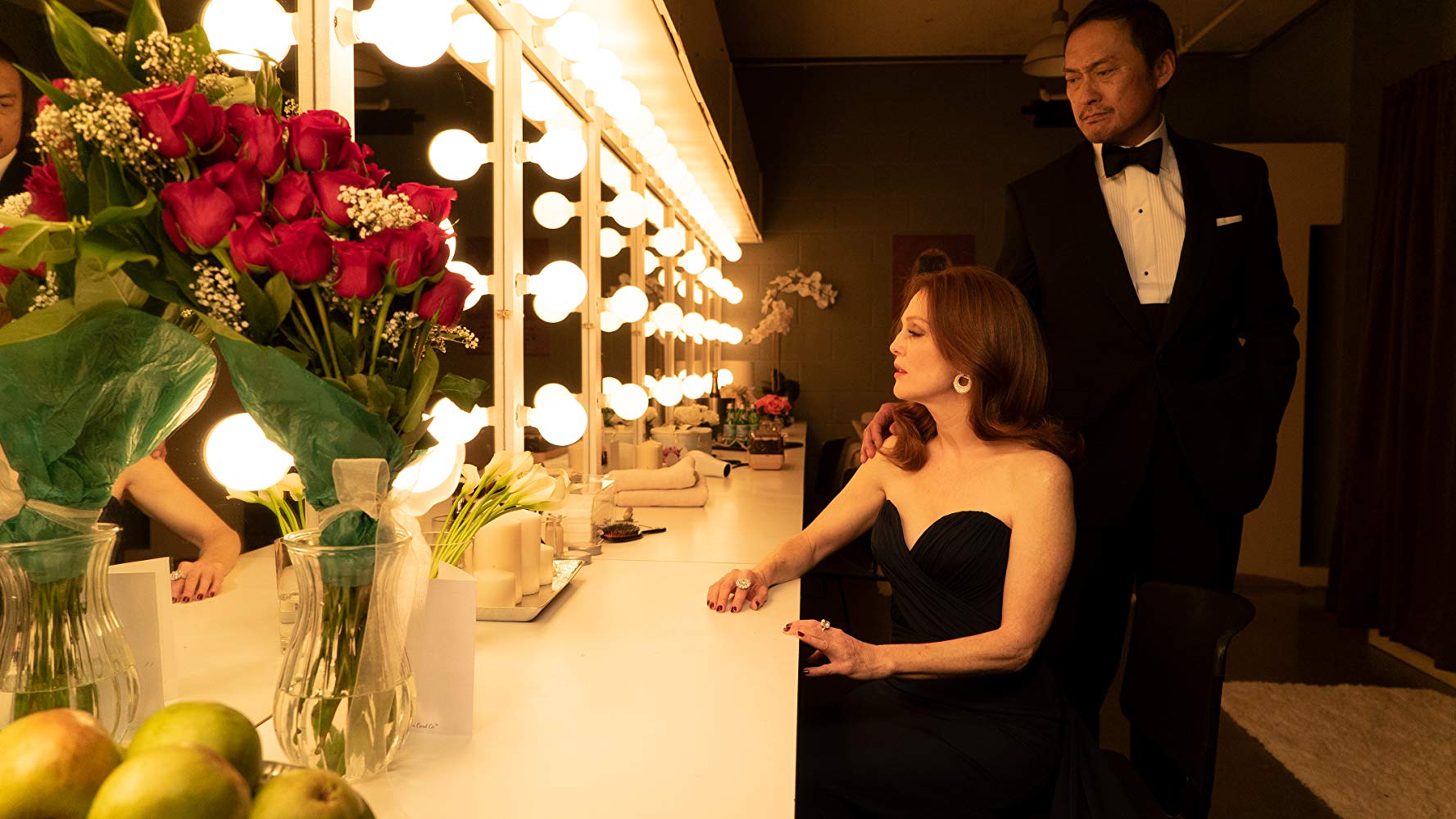
Moore and Watanabe’s romance in ‘Bel Canto’ is more adagio than allegro
Written by: Fiona Underhill, CC2K Staff Writer
Director Paul Weitz certainly has an eclectic CV. The through-line from American Pie to About a Boy to Little Fockers is logical enough, but then we come to his two most recent entries – Mozart in the Jungle and Bel Canto – where things certainly take a turn towards the more mature and serious. It appears that Julianne Moore has focused more on publicizing Gloria Bell at festivals and the like recently, whereas Bel Canto has pretty much received a straight-to-streaming release. This seems odd, for it’s the type of film which could have easily been in festival and award conversations, if it was marketed that way.
Bel Canto concerns Katsumi Hosokawa (Watanabe), a Japanese businessman, who is obsessed with opera singer Roxanne Cross (Moore) – so much so that he arranges a meeting in a deliberately vague Central American country (on the pretense that he may build a factory there), just so he can hear her sing at a private party in the home of Vice-President Ruben Ochoa (Eddie Martinez). Shortly after the event begins, the party is stormed by rebel guerrillas (led by Tenoch Huerta’s Commandante Bejamin) who believe that the President is there. Finding that the President hasn’t turned up to the party, they take everybody hostage instead (including French Ambassador Simon Thibault – played by Christopher Lambert) and issue demands about having political prisoners released. A negotiator from the Red Cross, Joachim Messner (Sebastian Koch) is sent in, but he struggles to make progress. A lengthy stalemate ensues, which leads to the captives developing Stockholm Syndrome – particularly Hosokawa’s translator Gen (Ryo Kase), who falls for the beautiful young soldier Carmen (Maria Mercedes Coroy).

With a cast such as this, of course one of Bel Canto’s main strengths is going to be the performances. Wantanabe and Moore offer a convincing portrayal of two people falling in love in difficult circumstances, and it is gratifying to see a romance focusing on two people who are almost 60. Sebastian Koch (so impressive in The Lives of Others and Black Book) is typically understated here as a man pulled in many different directions, trying to remain as neutral as possible. The camaraderie among the hostages is believable, while the constant tension in the house from what seems to be a young, inexperienced, and nervous guerrilla force is also palpable. Their jittery fingers on the triggers lead to more than one mistake and the anticipation of how everything will be resolved maintains the viewer’s interest.
The power of the human singing voice and of music in general is one of the central themes. Roxanne starts to suffer from not practicing her singing and feels her identity and purpose slipping away. She becomes of some use when the water supply to the house is cut and she gains the attention of the media and the government by going out onto the balcony to sing. She is then rewarded with a private room within the house, which is handy for her budding romance with Hosokawa. Again, it is refreshing to see a sex scene (even a tepid one) involving actors and characters of this age.
As the plot moves towards its inevitable climax, which can only end messily and with casualties of war, Bel Canto proves to be a surprisingly emotional experience. The audience comes to realize that they have grown to care about the rebel soldiers, becoming victims of Stockholm Syndrome themselves. The movie shies away from actually probing the politics of anyone involved, keeping it all very non-specific and therefore on a surface level. The political situation only serves as a backdrop to the two romances involving the central four characters. This makes it easier to sympathize with the young guerrillas, who come across as naive and idealistic, rather than actually seeming ruthless or calculated.
This film is not making any wider commentary on the state of the world. It is a small story focusing on characters trapped inside a house for a specific period of time. It is more interested in how humans cope with this and the disintegration of their hygiene, privacy and what they may have considered basic necessities. Yes, it is cliched to say that the situation ends up only increasing their humanity rather than degrading it, but this movie is pretty cliched. Nevertheless, you’d have to be pretty determined to remain unmoved if you reach the end entirely unaffected by the characters and their plight. It is a well-acted, involving story and worth finding on a streaming site. You may be pleasantly surprised.
